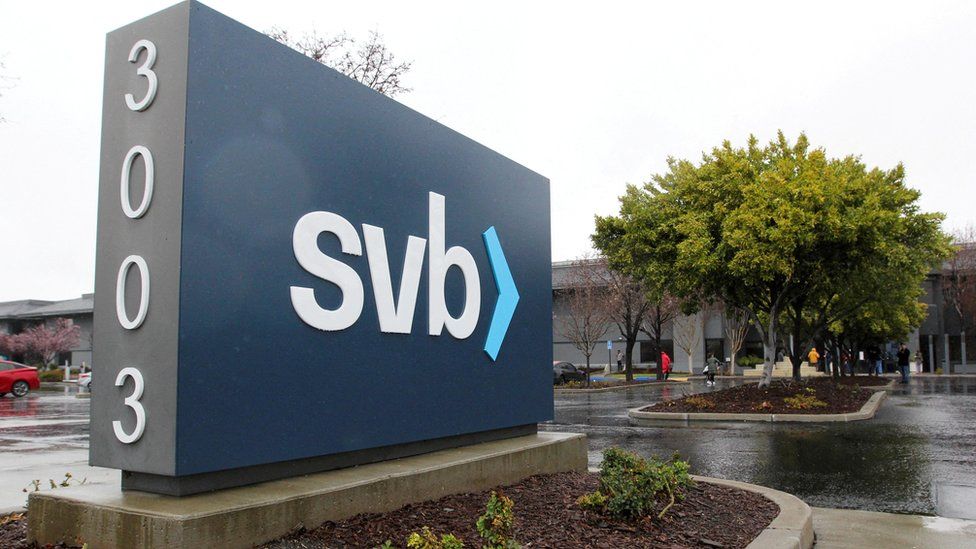Editorial from Offensiv, paper of Rattvisepartiet Socialisterna (our sister organisation in Sweden)
The threat of a banking crisis hovers over the world economy after the crash of Silicon Valley Bank (SVB), the second largest banking collapse in US history. Many inflated markets have been thrown into turmoil. Stock markets have been hit by a ‘global banking frenzy’. This year’s uptick on Wall Street has been wiped out and trading in corporate bonds has come to a screeching halt.
The end of the nearly 15-year period of a seemingly never-ending source of “cheap money” — low or no interest rates — was also the beginning of the end for the SVB.
An abundance of cheap money inflated assets, profits and stock prices over a long period, and served as a lubricant for speculative trades, but the return of inflation last year put an end to that era. Instead of cheap money, interest rates (the price of money) have risen in line with rising inflation, increasing the likelihood of financial and debt crises. Since the beginning of 2022, the US Federal Reserve has raised its key interest rate from 0.25–0.50% to 4.50–4.75%, an increase of over 1,000%.
The fact that some of the so-called “niche banks” were the first to collapse under the weight of high-interest rates and falling asset values is only the beginning of several financial sector collapses. The next may well come in the over-leveraged property sector. Or as US economist Kenneth Rogoff wrote in the Guardian on 5 January:
“Rising interest rates, for example, have put huge pressure on private-equity firms that borrowed heavily to buy up property. Now, with housing and commercial real estate on the cusp of a sharp, sustained drop, some of those firms will most likely go bust.”
The collapse of SVB last week was followed two days later by the collapse of the “crypto bank”, Signature Bank, making it the third largest bank collapse in US history. Both of these banks have been taken over by US authorities in anticipation of possible buyers.
This week began with yet another US bank, First Republic Bank, coming close to collapse after its share price fell by almost 60% in one day (13 March).
“Silicon Valley Bank had made huge investments at the peak of (pandemic) bond prices. Since the pandemic, US interest rates have risen very quickly — and bond prices have plummeted. The result was thus large losses”, writes the Swedish Dagens Nyheter on 13 March.
SVB is far from the only bank or company that has made large losses on similar transactions. Even the Swedish Riksbank (central bank) suffered big losses on bond purchases during the pandemic and taxpayers may have to contribute between SEK 50 and 70 billion to pay for it.
Within the space of 48 hours, the Swedish pension fund, Alecta’s, shares in the two failed US banks became worthless and SEK 12 billion (1.1 billion US dollars) that was to go towards future pensions was lost. “Those with occupational pensions in Alecta who were born in 1979 or later will be affected by (Alecta’s) crashed investments” (SvD Näringsliv, 13 March). Pensions should not be determined by the stock market and speculators — a completely new pension system is needed.
Whether this is the beginning of a new global banking crisis remains to be seen. But bank failures have shown how fragile the financial system is. Nor are the bank collapses in the US the first reminder of looming financial crises. Last September, the UK was on the brink of a near meltdown of the country’s bond markets and pension system. The crisis was only averted by the central bank’s massive subsidised purchases of government bonds.
The bank collapses of the last few days are not a coincidence, but a direct consequence of capitalism’s stagflationary crisis (inflation and stagnant or even negative growth), and even if central banks temporarily slow down the pace of interest rate increases, new crises are not far off, and the world’s poor and workers will pay the price.
There is no way forward within the framework of the capitalist system; it must be abolished to make way for a socialist world and a democratically planned economy to secure common need and the future of the planet.












